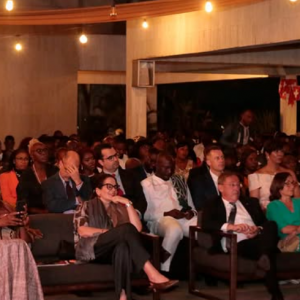Seattle becomes first US city to ban caste discrimination with Kshama Sawant Ordinance
The Seattle City Council voted Tuesday for the first U.S. ban on caste-based discrimination, a move the measure’s socialist sponsor hopes will inspire similar legislation nationwide.
The council voted 6-1 in favor of an ordinance by District 3 Councilmember Kshama Sawant of the Socialist Alternative party that adds caste as a protected class to a long list that includes age, race, religion, gender identity, national origin, immigration status, disability, and military status.
Caste discrimination will now be banned in fields including employment, housing, and public accommodation. People experiencing caste-based discrimination will also be able to file official complaints.
Not only is it the first such law in the U.S., it’s the first in the world outside South Asia.
“This bill is not technically complicated, it’s a very simple question: Should discrimination based on caste be allowed to continue in Seattle?” Sawant said in a packed City Hall before Tuesday’s vote.
Sawant, who is Indian-American, called the measure “profound and historic” and expressed hope that it will serve as a “beacon” for other cities to follow.
“If… you marched in the Black Lives Matter movement or you desire to live in a society free of racism, racial discrimination, sexism, or misogyny, then you should be paying attention,” she toldCNN before the vote. “Because while caste oppression or discrimination does not affect all Americans, the way it manifests itself is no different than other types of oppression under capitalism.”
Emotions and tensions ran high in City Hall before, during, and after the vote. Yogesh Mane, who grew up Dalit—the lowest caste—in India, wept as he heard the council’s decision.
“I’m emotional because this is the first time such an ordinance has been passed anywhere in the world outside of South Asia,” he told the Associated Press. “It’s a historic moment.”
The caste system, which has existed in South Asia for millennia, divides Hindus into groups including Brahmins (priests and teachers); Kshatriyas (rulers and warriors); Vaishyas (farmers, merchants, and traders); Shudras (laborers); and Dalits (street and latrine cleaners).
Although India’s constitution, whose drafting was led by the Dalit scholar Bhimrao Ramji Ambedkar, officially banned caste-based discrimination, those on the lower rungs—especially the Dalits—continue to suffer endemic discrimination and frequent violence. Such bigotry has been inflamed by the rise of Hindu nationalism in recent decades, and during the tenure of right-wing Indian Prime Minister Narendra Modi.
Advocates of the ordinance in Washington state’s largest city stressed that caste-based bigotry is by no means limited to South Asia.
“Caste discrimination doesn’t only take place in other countries,” Sawant—who grew up in a middle-class Brahmin family in Mumbai—said in a statement announcing the introduction of her bill. “It is faced by South Asian-American and other immigrant working people in their workplaces, including in the tech sector, in Seattle and in cities around the country.”
“We know that caste discrimination has been growing in the United States across many industries, including technology, construction, restaurants, and the service industry, and in domestic work,” she added. “Caste discrimination is increasingly a grave contributor to workplace discrimination and bias—data from Equality Labs show that 1 in 4 caste-oppressed people faced physical and verbal assault, 1 in 3 faced education discrimination, and 2 in 3 faced workplace discrimination.”
Caste-based discrimination is at the center of a case making its way through a California state court in which a former engineer at Cisco Systems says he was excluded from meetings and passed up for promotions because he is Dalit.












